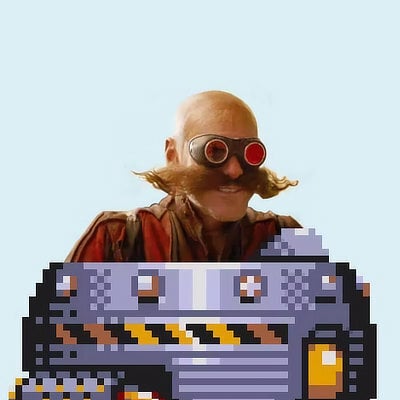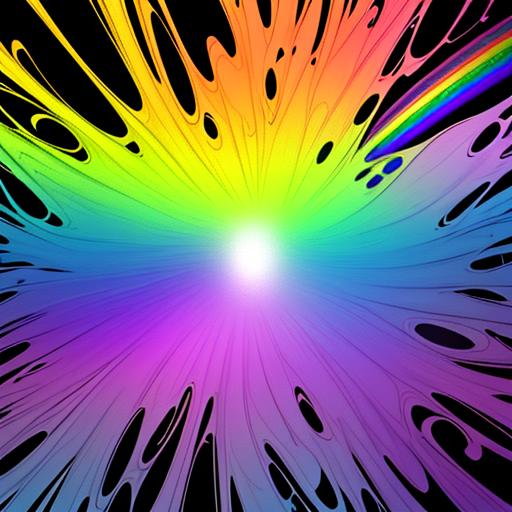Apart from being open source what is Linux? Could I not create my own operating system that is different to windows or Macos and call it Steve, again there might be an awnser for this and sounds stupid but its more out of curiosity.
You can 100% create your own kernel for an operating system, and call it Steve
Hypothetically, could a guy called Linus create his own kernel and name it after himself?
No, that would be “too egotistical” (in Linus’ own words). But he can have his friend who runs an FTP server completely ignore his wishes to have it named “Freax” and name the directory “linux” instead.
Sounds perfect… Just disappointed that Steve os has not been released :/ I can hope though!
Don’t let your dreams be dreams.
You can 100% create your own kernel for an operating system, and call it Steve
But would it be in honor of Steve Jobs, Steve Ballmer, or Steve Seagal?
Minecraft Steve. Definitely
Linux is the kernel; that is, the core of the operating system, which handles memory, hardware, inputs… Every OS has one. Windows’ is called NT, macOS’ is called Darwin.
You don’t use the kernel, you use the OS. Linux is special because there several operating systems based on Linux; they are called distributions, and they are what you want to use.
You can create your own Linux distribution, by bundling various software packages with the kernel, in a way that caters to specific needs or follows a philosophy (for example, Linux Mint is a distribution focused on ease of use, Archlinux on minimalism…). This is not possible with Windows because their kernel is not licensed under terms which would allow this. It is with Darwin, but unusual.
You can also create your own kernel but this is extremely hard. Getting the computer to boot is easy enough (relatively speaking), but getting programs to run and things to display is much harder. Getting your custom kernel to a usable state is orders of magnitude harder, as it needs work on and communicate with modern hardware and networks. Linux took more than 30 years of development by thousands of developers (some of them highly talented in a very narrow field of computing) to get to the level it’s at.
You piqued my interest with Darwin. What unusual cases are there?
It isn’t quite correct. Darwin is actually an open source operating system at the heart of macOS which is based mostly on a bunch of BSD and nextstep stuff. The actual kernel is XNU, based on the Mach kernel.
“Linux” has two meanings. One of them is the kernel itself; another is a collection of operating systems, that Stallman would call “GNU plus Linux” instead.
The later involves two factors. A “hard” one is the presence of the Linux kernel; but there’s also two softer and fuzzier ones:
- the operating system behaves like other OSes that the user calls “Linux”. For example you’re expected to have a /home/username, you can install a different DE/WM if you want, this kind of stuff.
- the OS is open in letter and in spirit. This is ideological but ideology is damn important when dealing with Linux.
A good example of both is ChromeOS: people don’t usually call it “Linux”, even if it uses the Linux kernel. It’s simply too atypical in behaviour, and ideologically too distant from the open source movement.
Just a little addition: the majority of things that people associate with Linux as per your first item are actually shared by many/most Unix-like OS and are defined via the various POSIX standards.
That’s not to say that Linux doesn’t have it’s own peculiarities, but they are fewer than many people think.
They do - and in some cases you can fit both items to a T, without fitting the “hard” requirement (Linux kernel); that was the case with Debian/kFreeBSD for example. (And even “vanilla” *BSDs feel right at home for most Linux users, I think.)
I’d just like to interject for a moment. What you’re refering to as Linux, is in fact, GNU/Linux, or as I’ve recently taken to calling it, GNU plus Linux. Linux is not an operating system unto itself, but rather another free component of a fully functioning GNU system made useful by the GNU corelibs, shell utilities and vital system components comprising a full OS as defined by POSIX.
Many computer users run a modified version of the GNU system every day, without realizing it. Through a peculiar turn of events, the version of GNU which is widely used today is often called Linux, and many of its users are not aware that it is basically the GNU system, developed by the GNU Project.
There really is a Linux, and these people are using it, but it is just a part of the system they use. Linux is the kernel: the program in the system that allocates the machine’s resources to the other programs that you run. The kernel is an essential part of an operating system, but useless by itself; it can only function in the context of a complete operating system. Linux is normally used in combination with the GNU operating system: the whole system is basically GNU with Linux added, or GNU/Linux. All the so-called Linux distributions are really distributions of GNU/Linux!
TIL thank you for sharing!
While that all is true, I’m pretty sure it is pasta as well fyi
Linux kernel + everything else you need to make a function os + a mostly free and open approach to software = Linux
The kernel. It’s why the BSD distros for example, while very similar to Linux, aren’t “Linux”.
Linux is a combination of the Linux kernel (some really low level software that tells the OS how to communicate with your hardware, not something most users should worry about) and software from GNU (some Linux users call it GNU/Linux for this reason). This is then used as the base for distros, which are basically just that plus a package manager (how you install apps) and usually a desktop environment and default apps as well.
Theoretically yes, you could create an operating system and name it Steve, but it wouldn’t be Linux unless it had the Linux kernel and GNU software.
Is Alpine not Linux then?
Linux is still Linux without GNU software on it.
But what should i use an operating system for, if not to start GNU Emacs?
Strictly speaking, Linux is a free, open-source OS kernel originally developed by Linus Torvalds in 1991. It needs to be combined with other software to make a working operating system, and that’s what Linux distributions (distros) are. Some of the core software with which the Linux kernel is combined comes from the GNU project, which started before the Linux kernel existed, and had the goal of developing a complete free Unix-like operating system. GNU can be used with other kernels but in practice it is almost always used with the Linux kernel.
What we commonly call Linux is the Linux kernel + GNU + other bundled software to make a complete usable operating system. Importantly, this usually includes a package manager to help with installing, updating and removing software, and it often also includes a windowing system and desktop (though it doesn’t have to). There are many, many ways of putting this package together, hence there are many Linux distros.
Many Linux distros prioritize free, open-source software (FOSS). Some include only FOSS while others include non-free software too.
Linux is a platform that allows you the freedom to acquire the perfect OS for your needs; Linux Mint for your elderly mother, ChimeraOS for the Steam Deck of your son, Debian for your server, Ubuntu on your laptop you use for work and we can’t forget your fully customized Arch/Gentoo on your self-built PC that has been optimized to perfection for your workflow. Whatever problem/use-case/need you might have for your device, Linux offers solutions that are quite possibly the best there is; your mileage may vary depending on your knowledge and experience*.
Mr. Stallman would be angry if you didn’t define it as the Linux kernel plus the GNU stuff that you need to do things with the kernel.
You don’t need any GNU stuff for a Linux distro though. It’s just very common to use GNU tools.
The GNU+Linux thing is dumb. First, the GNU userspace programs aren’t the only things added to the kernel to make a working OS. A more fitting name would be systemd+Xorg+PipeWire+Linux. Second, not all Linux distributions use GNU’s programs. Some use Busybox, such as Android. Some don’t even use GNU’s libc, but musl. On an entirely headless system running completely unattended, you could probably not have any userspace at all. Finally, the GNU programs aren’t used at all by the average Joe who only uses their computer for Web browsing, emails and games.
Nah. Defining Linux as ‘the Linux kernel plus the GNU stuff’ is what makes him angry. Defining ‘Linux’ as ‘just the Linux kernel’ and sticking to that narrow use would make his day.
Kernel = OS. Tools is what makes the OS actually useful, but strictly speaking they’re not needed.
Nobody would call linux to android, despite having the same kernel.
At least if we speak colloquially, the environment/ecosystem is really enough to define the OS.
Apart from being open source what is Linux?
The codebase in git.kernel.org’s torvalds/linux.git
Could I not create my own operating system that is different to windows or Macos and call it Steve
Of course, in fact many people have done so: TempleOS, MINIX, SerenityOS, etc.
The most important part of Linux is the distribution that provides a boot loader and wraps the Linux kernel in tools & tool management.
What makes Linux particularly special is you can create Steve from a derivative of the Linux kernel. So get cracking!
The kernel. That’s the part that is literally called “Linux”, i.e. the thing that has all the drivers for your hardware and regulates of multiple applications can run at once on the same machine.
On top of that comes the GNU userland (a project started before Linux to build a free Unix), this gets a bit more fuzzy, this includes things like glibc, all the basic tools, shell, ls, tar, rm, gcc, … It’s fuzzy because it’s not strictly required to run Linux. Android for example runs the Linux kernel, but has a completely different userland than a typical Linux installation, much of which use the GNU tools. And than you have things like systemd, X11, KDE, Gnome, … that aren’t really GNU userland tools, but rather important to what most people would expect from a “Linux desktop”.
“Linux” is the name of the OS kernel — the component that manages hardware drivers, schedules processes, provides basic networking operations, and so on. The project that builds that particular kernel was started in 1991 by Linus Torvalds.
However, that kernel is almost always used with an assortment of libraries, utilities, and user-interfaces (such as the
bashshell) which are often expected to be part of a “Linux system”. Many of these come from the GNU project, which began separately from the Linux kernel as an effort to make a free Unix clone.When the libraries etc. are the ones from the GNU project — e.g. the C library
glibc— we can call the system “GNU/Linux” which is a term used by Debian and some other software distributions.I’d just like to interject for a moment. What you’re refering to as Linux, is in fact, GNU/Linux, or as I’ve recently taken to calling it, GNU plus Linux. Linux is not an operating system unto itself, but rather another free component of a fully functioning GNU system made useful by the GNU corelibs, shell utilities and vital system components comprising a full OS as defined by POSIX.
Many computer users run a modified version of the GNU system every day, without realizing it. Through a peculiar turn of events, the version of GNU which is widely used today is often called Linux, and many of its users are not aware that it is basically the GNU system, developed by the GNU Project.
There really is a Linux, and these people are using it, but it is just a part of the system they use. Linux is the kernel: the program in the system that allocates the machine’s resources to the other programs that you run. The kernel is an essential part of an operating system, but useless by itself; it can only function in the context of a complete operating system. Linux is normally used in combination with the GNU operating system: the whole system is basically GNU with Linux added, or GNU/Linux. All the so-called Linux distributions are really distributions of GNU/Linux!
Just in case OP doesn’t know, this whole text comes from someone else. Some people prefer using words other than GNU/Linux.
Join us now and share the software…
You’ll be free hackers you’ll be free e e















